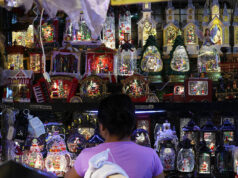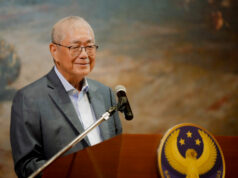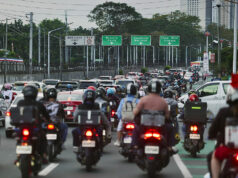ASIAN DEVELOPMENT BANK President Takehiko Nakao is relinquishing his post about two years ahead of schedule to give way to a successor “with fresh ideas and strong commitment to development,” the regional lender announced on Tuesday.
“I would like to inform staff and Board members that I have decided to resign as the President of Asian Development Bank, effective January 16, 2020,” Mr. Nakao said in a statement of intent of resignation posted on ADB’s Web site.
Mr. Nakao had first assumed his post as ADB president on April 28, 2013, succeeding Haruhiko Kuroda who stepped down in March that year and now serves as Bank of Japan governor.
Mr. Nakao was reelected on Nov. 24, 2016 to serve a fresh five-year term.
While his statement did not elaborate on the reason for his decision, Mr. Nakao said: “I feel this is a good time to ask someone with fresh ideas and strong commitment to development to succeed me.”
“I announce my resignation now so that the institution can have a smooth transition of presidential administrations,” Mr. Nakao said.
Mr. Nakao outlined achievements under his term, including:
• an increase in new lending and grant commitments to $22 billion last year from $14 billion in 2013 while incorporating more advanced technologies into projects;
• out of this total, increased private sector operations (lending, equity investment and guarantee to private companies) of $3.1 billion with enhanced system of risk management from $670 million;
• merger of Ordinary Capital Resources and concessional lending operation of the Asian Development Fund (ADF) which enabled expansion of operations;
• completion of ADF 12 replenishment to continue grant operations for the poorest countries;
• strengthening operations in social sector such as health and education;
• doubling ADB’s climate mitigation and adaptation finance in five years;
• using project, result-based and policy-based loans and grant programs to respond to difficulties of countries from external volatilities, natural disasters and displaced persons;
• increasing funding through local currency bonds and issuing thematic bonds such as green, gender and water;
• and launching the lender’s Strategy 2030 last year after a review of ADB priorities, including continued efforts to reduce poverty, and with clear targets for climate change, gender, private sector operations and co-financing.
At the same time, Mr. Nakao said, the region faces growing challenges like persistent poverty and a growing income gap, the need to support small island economies and other countries in fragile situations, achieving gender equality, mitigating and adapting to climate change, protecting the environment including oceans, addressing urbanization, coping with demographic change, ensuring food security, promoting rural development, and enhancing regional cooperation.
“The region is critical in achieving global agenda such as Sustainable Development Goals and the Paris agreement for climate change because its population already accounts for more than half of the total world’s population, and is expected to keep growing together with its size in economy,” he noted.
Mr. Nakao’s term has also seen the emergence of a parallel regional lender, the China-led Asian Infrastructure Investment Bank, which began operations in January 2016 and now counts 74 economies as members, besides 26 prospective members. While analysts had regarded this development as part of China’s growing geopolitical and economic assertiveness against the West, both institutions took pains in mid-2018 to characterize their relationship as being complementary rather than one of competition, with Asia needing about $1.7 trillion in annual infrastructure investment between 2016 and 2030.
Formed in 1966 with 31 initial members, ADB’s membership has grown to encompass 68 economies, including 19 outside Asia and the Pacific.
“ADB will continue to reinvent itself for responding to changing needs of our developing member countries and pursuing its mission to achieve a prosperous, inclusive, resilient and sustainable Asia and the Pacific,” Mr. Nakao said.



